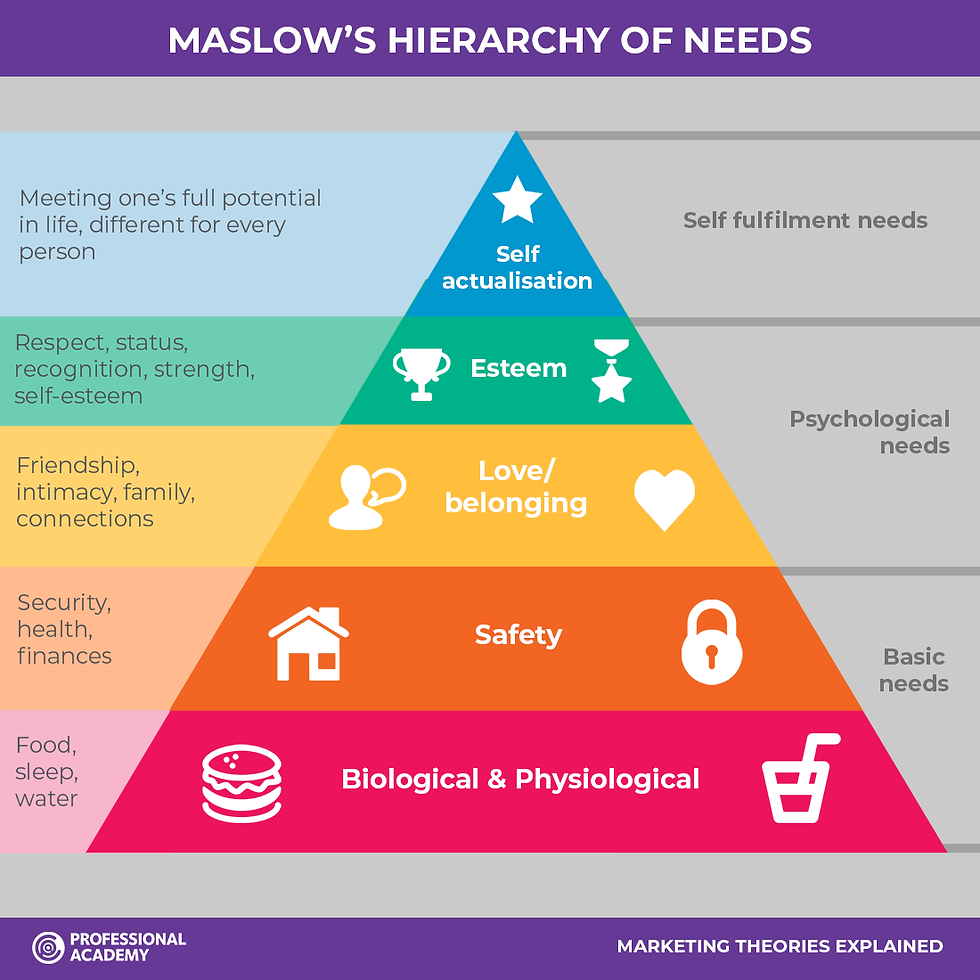Helping people with injuries move out of a negative mindset and manage fear
- Danielle Mik

- Sep 23, 2023
- 3 min read
Having worked with so many individuals that have been injured at work who are trying to reclaim their life to so they can progress in a positive way, and become 'unstuck' from a negative place so they can lead a productive life, I am constantly challenged as to the best ways to help them navigate that path.
I have trialled the following approaches and found the combination of these steps extremely successful in assisting the majority of clients to make that move forward:
Developing self empowerment and self management to reclaim control of their life to build motivation and move out of a state of learned helplessness
Provide education about what is happening physically and emotionally as a result of the trauma they have experienced
Connecting behaviour to values, thoughts and emotions and understand WHY specific reactions to specific events occur so they can manage their and others behaviour in life
Develop positive thinking to assist recovery from trauma and build a positive future, and
Develop the acceptance that each of us has to take on the responsibility for substantially controlling how happy we feel and help develop confidence in the ability to influence our state of happiness……
Explaining that fear is a common emotion experienced by everyone who is injured or ill, but that fear can lie to us (its hard to accept I know) is an important step in accepting that we can learn to control it. Our brain will tell us lies with the best of intentions - its trying to keep us safe. Staying as we are is what our emotional brain tells us is the safest thing to do, and we have to actively fight against that thinking to move forward. This isnt intuitive to most people. So why does this happen? Because change involves leaping into the unknown, which is threatening to us, and we are neurobiologically programmed to seek safety and avoid danger. Our emotional brain does not differentiate between a real threat and a perceived threat, they both trigger the same fight/flight response.
When people truly understand the fundamental neuroscience of the brain and the fight/flight response - they realise that FEAR is largely an autonomic response. When they believe that the person working with them understands this too, it allows them to develop a sense of their issues being understood. This validation of their experience leads to a true connection being made with the person assisting them, which allows them to trust what is being said to them enabling them to self calm, giving rational thinking the ability to start taking over.
Emotional Intelligence research tells us that any strong emotion can make us stupid – leading to black/white, either/or, right/wrong thinking. So When fear takes over - it sends our thinking haywire! We develop "Faulty Thinking"that prevents us from moving forward and making the changes in our lives we need to - it prevents us from pursuing our goals and dreams.
I developed the following poster for my clients to help them address their cognitive distortions, or Faulty Thinking - something to put up on the wall to read to themselves regularly to remind them to not let their fears hold them back.

Moving forward "out of our comfort zone" and beyond our fears is a very tough thing to do - because we are fighting an autonomic fight/flight response. It takes practice, self trust and positive self talk. We aren't born with the huge list of fears that we have - we are basically born with two common fears - falling and loud sounds. Any fears we have beyond that - are learnt - and being injured at work, and being part of a compensation system teaches us many fears!
Just think about the fear triggers listed below (and I am sure you can think of at least a hundred more):
Re-aggravation
Pain
Co-worker attitude
Employer attitude
Demotion or being sacked
Learning new skills
Not being believed
Being thought of as ‘bludger’
Ability to learn
Not making enough money to pay the bills and feed the family......the list goes on and on
In order for the higher centers of the brain to be able to do the re-framing it needs to do, we need to learn to self calm, and using positive self talk is one of the best ways to do this, as are also:
Gratitude Therapy
Emotional Regulation through music
Mindfulness
All of these approaches through research have been shown to improve emotional control and allow self calming to be effective so rational thinking can kick in and positive steps forward in life be taken. Getting the amygdala calm helps to achieve emotional control – we can teach ourselves to achieve this - and we can teach others to do this through emotional intelligence programs that teach these skills.
Try these re-framing examples - make up your own that are specific to the fear you have - make them your mantra and see them help you move forward!






Comments